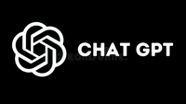|
|
|
|
|
|
|
|
|
Dear reader,
Welcome to The Director's Dilemma September 2023
Each month this newsletter looks at a real-life board scenario and considers a range of responses. The scenarios are de-identified to protect the individuals concerned. This month we advise a listed company board that appears to have issues in expenditure control.
Of course, scenarios in this newsletter are general, I work with boards and directors as a confidential mentor and help them beat challenges and seize opportunities. If you would like personalised service, please call me.
To read this email in a web browser, go to www.mclellan.com.au/newsletter.html and click on 'read the latest issue'. I hope you will enjoy the latest dilemma:

Giselle joined the board of a company listed on her home stock exchange that had overseas operating subsidiaries. She was appointed upon listing and, although she read the prospectus very closely and made herself available to the management team for briefings before the listing, has no history with this board and company.
Her background as a senior executive in a MNC and her experience on a couple of government boards were instrumental in helping her to gain appointment. However, she is now wondering if she should have declined the role.
The Chair is the former CEO of a large broking firm, and the CEO is an experienced broker, who used to work for the Chair. The CEO was instrumental in pulling the listing together and raising capital but has never led an operating company before.
The company was formed by amalgamating several pre-existing companies with a strategy for reduction in overheads and back-office costs as well as aggressive growth leveraging the newly acquired scale and geographic reach.
The CFO is young and has never been a CFO before. The problem is that the company is not following the plan and not on track to achieve the results forecast in the prospectus. Giselle is worried because invoices for very large capital and operating expenditures reach head office after significant delay and without warning. These costs were not foreseen and will threaten solvency if they continue.
Neither the CEO nor the CFO appear to be able to design and implement, let alone enforce, a system for authorising expenses before the newly acquired subsidiaries make them. Worse, the Chair accepts the CEO's assurances that the expenditures will cease without a clear plan for causing this to happen.
What should Giselle do?
|
|
|
|
Ralph's Answer

\Giselle is indeed in a serious jam here, and at this point it's no use advising her that she should have realized she was walking into a rollup that lacks a strategy, management skills, or internal controls. Since she seems to be the only person at the top of the entity with actual management background in running an enterprise, she needs to push some urgent board initiatives to identify who can help.
A first governance step would be a talent matrix of who else in on the board brings needed savvy in finance, management, markets, sales and so on, depending on this new company's sector. Unless Giselle wants to work 12 hour days for a while, find out who on the board can pitch in for at least the next few months (and if these talents aren't on the board, seek them asap). This approach not only fills immediate gaps, but builds the board's identity and confidence (while prodding the chair into a sense of urgency).
Speaking of talent, the board should seek a full talent assessment of the various firms that have been rolled up. Who has strong line experience in running operations? Who knows your current customers best? Who are the finance leaders of the companies, and what progress are they making on integrating the disparate accounting and controls systems? Since a goal of this new company is to cut overhead, it's crucial to identify the most skilled managers now, before cutting back (and before they seek safer prospects). Also, assuming the current CEO and CFO aren't going anywhere, you shape a back stop/succession framework to aid them.
Finally, it sounds like this rollup was formed with a strategy that really isn't. Giselle should table a board resolution for an urgent board and management strategic planning retreat. Get your leadership into a room with a white board and lots of coffee, and no one leaves until you have a complete, coherent plan to rationalize this paper enterprise and get it working.
Ralph Ward is based in the United States, and is publisher of the Boardroom INSIDER newsletter, author of six books on corporate governance, and a global board and governance trainer.
|
|
|
|
Julie's Answer

Giselle is on the board of a listed company that is not on track to achieve the results outlined in the prospectus. She needs to think very carefully about when the board became aware of this fact and when the board is going to disclose it. In Australia the timing of such an announcement would be 'immediately' unless the board wanted to risk breaching its duty and facing legal action.
If there is any doubt that the strategy is going to work the board needs to spend sufficient time with management to understand how far from forecast their results will be and what they can do to improve the situation.
Directorship is leadership. Giselle needs to lead her CEO and CFO as they are relatively inexperienced and have not faced these issues in their previous roles. She also needs to respectfully lead her Chair; unreasonable reliance on baseless assurances is not enough to reach the standard of diligence required.
It is likely that much of the problem stems from managers who believe that, having been acquired, their operations are now able to enjoy unlimited access to the parent company's funds. The rest is possibly down to a CEO and CFO who do not have experience designing and enforcing financial controls. She should help them to run a workshop with the person responsible for each operation to join his or her counterparts to plan how best to apply the remaining resources in order for the company as a whole to survive. External advice may be needed to understand the cash situation and make accurate and timely disclosures.
The one thing Giselle cannot do is hesitate. This situation is screaming for leadership action.
Julie Garland McLellan is an experienced non-executive director and board advisor based in Sydney, Australia.
|
|
|
|
Jaco's Answer

Giselle is confronted with a complex situation involving governance, financial management, and potential solvency risks at her company. The suggested course of action involves several steps:
Assessment of the Situation: Giselle should gather detailed financial statements and reports on unexpected invoices to understand the problem's scope. She needs insights into the invoices' nature and the company's current financial health.
Engage the Chair of the Board Audit & Risk Committee: Giselle should discuss her concerns with the Chair of the Board Audit Committee. Presenting findings about expense discrepancies and solvency risks emphasizes the issue's significance.
Meeting with the Chair of the Board: If the Chair of the Audit Committee agrees, Giselle should request a meeting with the full Board. Avoid making serious allegations against executives; instead, propose solutions to address potential weaknesses in company governance and financial management.
Seek External Advice: Consulting external experts or peers experienced in such situations can offer insights and validation for concerns.
Consider External Expertise: Hiring an external financial auditor or consultant, with Board support, can review company processes and suggest best practices for improvement.
Evaluate Personal Liability: Giselle should consult a legal advisor to understand her liability as a board member in the given scenario. Ensuring she's not personally at risk due to executive negligence is crucial.
Re-evaluate Board Role: If her efforts aren't supported by the board or necessary actions aren't taken, Giselle should contemplate resigning from her position, considering her professional and ethical interests.
Giselle should document all communications and efforts throughout the process to demonstrate due diligence and to provide a record for potential legal or financial consequences in the future. By following these steps, Giselle aims to address the situation, strengthen governance and financial practices, and safeguard the company's stability.
Jaco Kriek is Managing Director, Search Partners International / AltoPartners South Africa and a former CEO and Executive Director of the Pebble Bed Modular Nuclear Reactor Company (PBMR). He is based in Johannesburg, South Africa.
|
|
|
|
Chat GPT's Answer

Giselle should initiate a comprehensive investigation into the deviations from the company's original plan and the unexpected invoices. Gathering all available financial and operational data will provide a clearer picture of the situation.
Given her experience, Giselle can discreetly consult industry experts or colleagues who have faced similar challenges. Their insights might shed light on effective strategies to address the issues. Collaborating with fellow independent directors will create a collective voice to address the concerns. Their perspectives and combined influence can make a significant impact.
Giselle should have one-on-one discussions with the CEO and CFO, expressing her concerns openly but diplomatically. Understanding their viewpoint and challenges they face can foster a collaborative solution.
Proposing a review of the company's corporate governance practices can help identify gaps or weaknesses that contribute to the current situation.
Suggesting an external financial audit can provide an impartial evaluation of the company's financial health and operational practices. This objective assessment can highlight areas for improvement.
Recommending workshops or training sessions for the board members can facilitate a deeper understanding of the company's operations and financial intricacies.
Giselle can propose a thorough review of the company's growth strategy, including its acquisition approach and operational expansion plans.
Engage the Board Audit & Risk Committee to escalate concerns and involve them in addressing the financial discrepancies and operational challenges.
Advocate for a more transparent reporting system where significant expenses are regularly reported to the board in a timely manner.
Giselle should consider the long-term viability of her position on the board. If her efforts to address the concerns are consistently blocked and the company's well-being is at risk, she might have to evaluate her continued involvement.
Giselle should ensure that all her actions and communication are transparent, both within the board and with external stakeholders. This approach demonstrates her commitment to the company's success.
By approaching the situation strategically and collaboratively, Giselle can use her expertise to guide the company back on track and ensure its sustainable growth.
|
|
|
|
Where is Julie? This issue of the newsletter is coming to you from beautiful Croatia, where I am holidaying for a couple of weeks. I will be back in Australia in late September and hope to be refreshed and re-energised ready for two more Writing Better Board Papers courses in Sydney and Melbourne as well as resuming my usual teaching and consulting workload.

Get better Board Papers - Are you less than 100% happy with the papers that your board receives? I have recently updated my one-day training course on Writing Better Papers.
New content now includes best practice on preparing papers for use with board portals, writing compelling recommendations, and the process for handling questions prior to the board meeting. If you want to attend, I shall be hosting a public course in Sydney on 18 October and in Melbourne on 19 October. Email me for more details.
If you would prefer an in-house course for your executive team, please call or email me, or ask your training department to contact me at julie@mclellan.com.au to find a date that suits.
Video resources - I post short video insights on LinkedIn. They disappear after a few days. You might like to visit (and please subscribe to) my YouTube channel to see the videos whenever you want to watch them. Let me know if there are any topics you would like to see addressed.
Board review - Every board - just like every other team - needs to measure its performance if it hopes to improve. When your board next needs to conduct a performance evaluation or a governance review, please remember that I would be delighted to help. If I can help, please contact me at julie@mclellan.com.au.
Inspirational quote for September
"A well-structured board paper package enhances the board's ability to make sound judgments." - Jim McNerney, former CEO of Boeing.
I couldn't agree more!
A note on names - A few readers have asked me where I find the names for the protagonists in each case study; I 'borrow' them from people I meet or things that I read. Giselle is a girl's name with French roots. The original spelling Gisѐle stems from the Germanic work gisíl, which means "pledge." When Giselle joined the board, it is as if she had pledged herself to serve the company. She must now honour that commitment.
This newsletter - If you have any ideas for improving the newsletter please let me know. If you are reading a forwarded copy, please visit my website and sign up for your own subscription.
Suggestions for dilemmas - Thank you to all the readers who have suggested dilemmas. They are greatly appreciated. I will answer them all eventually. I could not write this newsletter without your help and without the generous help of all the experts who respond each month to the case studies.
Be a contributor - if you would like to attempt a response to the dilemmas for publication you will be most welcome. Simply reply to this email and let me know. I am always on the lookout for new talent from around the world so please reach out if that sounds like something you could do. I am also always grateful for the generous sharing of the current and past contributors. I couldn't create such an engaging newsletter without their help.
Let's connect - I use LinkedIn to share information about boards and directorship with my friends and acquaintances. If you use LinkedIn and we are not yet connected I will welcome a connection from you. You can find me at linkedin.com/in/juliegarlandmclellan.
Farewell until the next issue due 1 October. I look forward to greeting you again then.
Enjoy governing your companies, it is a privilege!
Best regards,
Julie

Main photo by Mubariz Mammadli at Pexels.com
Disclaimer: The opinions expressed above are general in nature and are designed to help you to develop your judgement as a director. They are not a definitive legal ruling and do not constitute legal advice. Names and some circumstances in the case study have been changed to ensure anonymity. Contributors to this newsletter comment in the context of their own jurisdiction; readers should check their local laws and regulations as they may be very different.
Privacy: I am privileged to have your contact details and keep them as safely as possible. I will alert you if they are ever accessed by any unauthorised person. The technical staff at ayuda help with publishing and issuing the Director's Dilemma and have access so they can send the newsletters to you. I do not sell your details to anyone; they are kept only for the intended purpose - sending you this newsletter and helping to build the judgement of company directors by providing a safe way to consider potential responses to real life events.
|
|
|
|
|
|
|







